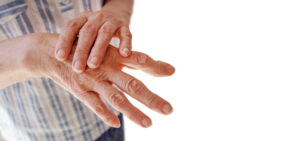Arthritis affects millions in the United States, leading to joint pain, stiffness, and a reduced range of motion. Managing arthritis includes medical treatment and specific physical activities. Fortunately, the warm Florida weather in Wellington is perfect for exercising. This is very important for controlling arthritis symptoms and keeping joints healthy.
In this article, we will look at the best exercises that help with arthritis.
Swimming
Swimming is a good way to manage the symptoms of arthritis. The water can help provide external support to your joints, relieving some of the pressure. It also provides some resistance, which helps you build muscle.
The many pools and aquatic centers in Wellington make swimming an easy, year-round option.
Water Walking
Water walking is especially helpful for people with knee or hip arthritis. The water provides outside support for your body weight. This way, you can move as you normally would, but with reduced strain.
Begin with 10-15 minutes of slow water walking, and increase the time as you feel more comfortable.
Aqua Aerobics
Aqua aerobics classes provide organized workouts that focus on joint health. These classes mix heart-healthy exercises with strength training in a low-impact setting.
Many community centers in Wellington offer aqua aerobics programs.
Water Cycling
A stationary bike submerged in water lets you do water cycling. This exercise eases joint discomfort while strengthening the leg muscles. The water’s resistance gives you a great workout without the impact of regular cycling.
Walking
Walking is an accessible exercise for people with arthritis. Wellington’s many parks and walking trails offer beautiful paths for daily walks. You can begin with 10-minute walks. Gradually go for longer walks if your condition improves.
Stationary Cycling
Stationary cycling provides heart-healthy benefits without putting stress on weight-bearing joints. The smooth, circular motion helps keep knees and hips flexible while strengthening leg muscles. Make sure to adjust the seat height correctly for a comfortable pedaling experience.
Elliptical Machines
Elliptical machines offer full-body workouts with very little impact on the joints. The gliding motion provides benefits similar to running or jogging without the impact.
Tai Chi
Tai chi uses slow, gentle movements combined with meditation techniques. This ancient practice helps improve:
- Balance
- Flexibility
- Joint movement
Many senior centers in Wellington offer tai chi classes specifically designed to help manage arthritis.
Resistance Band Exercises
Resistance bands are a safe way for people with arthritis to build strength. These elastic bands provide adjustable resistance without the need for heavy weights. Strengthening the muscles around affected joints can help support and stabilize them.
Light Weight Training
Using light weights helps maintain bone strength and muscle mass. Do not go too heavy right away — you should be able to complete 12-15 repetitions without feeling any joint pain. Both free weights and weight machines can be effective when used correctly and with proper guidance.
Isometric Exercises
Isometric exercises involve tightening muscles without movement. The following exercises can be done almost anywhere:
- Wall sits
- Planks
- Glute squeezes
Chair Exercises
Individuals with limited mobility or severe arthritis symptoms can benefit from chair exercises. The following movements offer gentle ways to build strength:
- Seated leg extensions
- Arm circles
- Shoulder rolls
These exercises can be done at home or in group classes.
Stretching
Stretching helps keep joints flexible and prevents stiffness. Do gentle stretches every day, holding each stretch for 15-30 seconds. Focus on the main muscle groups and joints affected by arthritis.
Yoga
Yoga improves flexibility through structured poses and breathing exercises. Many yoga studios in Wellington have classes tailored to fit the needs of seniors and individuals with joint issues. If an individual has difficulty with a particular pose, they may be able to use blocks and straps for extra support.
Range of Motion Exercises
These exercises involve going through the full range of motion of your joints. The goal is to reduce or prevent stiffness while improving mobility. Perform these movements slowly and gently, avoiding any forceful actions.
Joint Mobilization
Joint mobilization includes gentle movements to support joint health. Doing them is simple, and they can be performed multiple times in a single day to reduce stiffness:
- Ankle circles
- Wrist rotations
- Neck rolls
Balance Training
Balance exercises are crucial for people with arthritis who may have reduced stability. Standing on one foot or walking heel-to-toe can improve balance and lower the risk of falling.
Coordination Exercises
Coordination exercises help the nervous system and improve how joints work. These movements are similar to things you might do every day.
- Marching in place
- Stepping to the side
- Swinging your arms
Stability Ball Exercises
Using a stability ball creates an unstable surface that challenges your balance and strengthens your core. These exercises improve body awareness, joint stability, and the muscles that support your joints.
Creating a Sustainable Exercise Routine
Consistency proves more important than intensity when managing arthritis through exercise. Aim for regular activity rather than sporadic, intense sessions. Daily movement, even in small amounts, provides cumulative benefits.
Variety prevents boredom and works different muscle groups to target chronic pain in Wellington. Combine water exercises, walking, and stretching throughout the week for comprehensive joint health support. Track progress through simple measures like increased walking distance or improved flexibility.
For comprehensive arthritis management in Wellington, trust the expertise of Advanced Medical’s Dr. Ishan Gunawardene and family nurse practitioner Shariffa Gunawardene.
The Best Treatments for Arthritis in Wellington, FL
Exercise is a great way to manage symptoms of arthritis. Choosing activities that you enjoy and can do regularly is important. Wellington’s warm weather and many recreational facilities make it easy to stay active with arthritis.
Start today and be proactive about your joint health. Call Advanced Medical at (561) 434-1935 or use our online appointment request form to schedule an appointment. Our experts can create a complete arthritis management plan with the right exercises for you.
The best primary care physician near you looks forward to serving you!











